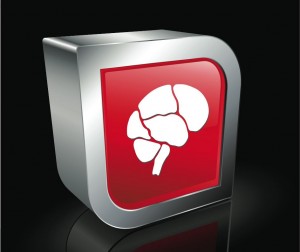Promoting science literacy through local TV news and the Web
 Brainlink was a public education project funded by a Science Education Drug Abuse Partnership Award from the National Institute on Drug Abuse (NIDA) at the National Institutes of Health (Lawrence Kutner, principal investigator; Cheryl K. Olson, coinvestigator). The goal of Brainlink was to increase scientific literacy – particularly as it relates to neuroscience, drug abuse and addiction – by researching, producing and distributing innovative educational programs to the public and to journalists. We also sought to improve the image of scientists and increase the appeal of science careers.
Brainlink was a public education project funded by a Science Education Drug Abuse Partnership Award from the National Institute on Drug Abuse (NIDA) at the National Institutes of Health (Lawrence Kutner, principal investigator; Cheryl K. Olson, coinvestigator). The goal of Brainlink was to increase scientific literacy – particularly as it relates to neuroscience, drug abuse and addiction – by researching, producing and distributing innovative educational programs to the public and to journalists. We also sought to improve the image of scientists and increase the appeal of science careers.
The Brainlink project was designed for people who don’t watch science stories on public or cable TV, and who might not think of themselves as particularly interested in science. Video news stories from the project are archived here.
This is what we proposed to NIDA:
Despite the rapid pace of scientific discovery in recent decades, the majority of Americans have limited knowledge of science. To maintain America’s leadership role in science and allow continuing progress, the general public must value scientific research. This requires:
Increased knowledge: We need greater understanding of basic facts, terms and skills (science literacy), as well as the nature of scientific thinking: forming and testing hypotheses, and assessing and applying research findings (scientific literacy). This should lead to a basic ability to judge the quality of a research study reported in the media (e.g., can it be generalized from the type and number of subjects involved; correlation vs. causation).
Positive attitudes and beliefs. The majority of the public should have positive opinions about scientific research and researchers, and find them credible sources of information. We need to build confidence that researchers generally use humane and appropriate methods (e.g., use of animals and human subjects), and that basic as well as applied research often lead to knowledge that improves our health and daily lives.
Supportive behaviors: The public needs to voice support for scientific research, encourage young people to consider science careers, and rationally judge and support science public policy issues (e.g., knowing the role of behaviors and brain chemistry in drug addiction helps shape opinions on prevention and treatment policies).
To promote these objectives, we propose to reach and educate those members of the public who don’t typically seek out science programs, through a medium they already use: local television news broadcasts. We will research, produce and distribute an annual series of 10 news stories plus collateral in-depth Web material to stations across America, for use as a week-long special health/science feature series or a month-long set of linked reports. Television stations are airing more local news than ever, with reduced or stagnant budgets; they are increasingly seeking low-cost outside-produced programming. We expect these news stories to be particularly attractive to stations in medium and small markets (defined metropolitan and rural areas) since unlike stations in large markets such as New York and Chicago, they are unlikely to employ reporters or producers who have specialized training in health and science. Stories will be available to local TV stations via TheNewsMarket.com.
To extend the reach of our project and the uses of our educational materials, we will collaborate with the National Press Foundation (a respected journalism education organization devoted to helping editors, producers and reporters better understand and explain the impact of public policy on readers and viewers) to develop, publicize and distribute podcasts for general-assignment reporters (from all media) on topics compatible with our news stories.
Read a report about the Brainlink project in the online journal
Media Psychology Review
See archived text from some of the Brainlink web pages:
Those alluring brain images!
Fears about vaccines and autism
Read an example of our “Spot the Crap” educational quizzes for journalists!
Spot the Crap: “breakthrough” drug trial